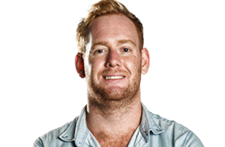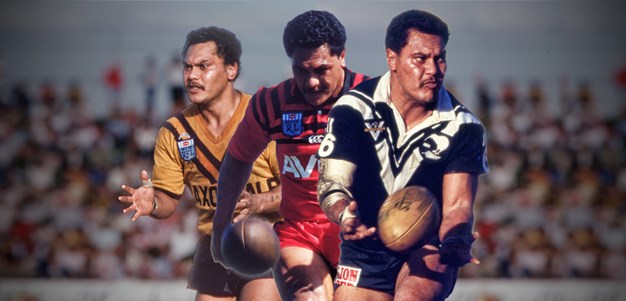
Players at the 12 non-Queensland based clubs will once again be housebound aside from training and games as the NRL aims to avoid relocating clubs and games in the face of infection spikes.
The ARL Commission confirmed a return to the strict biosecurity measures on Tuesday amid growing fears of a COVID-19 outbreak in NSW, prompting chairman Peter V'landys to explore potentially relocating the competition to Queensland in the past 48 hours.
As it stands it is more likely that "we might move four Queensland-based teams into NSW" according to acting NRL CEO Andrew Abdo, but NRL officials are investigating all options in a rapidly changing COVID-19 landscape.
"That isn't high up on our list for potential mitigations for this," Abdo said when asked if the competition could shift north of the Tweed.
"It's much easier if you think about it logically to protect the players and the clubs where they are at the moment and minimise contact with others."
It is hoped that by reintroducing strict bubble conditions on players in NSW and the ACT, where they are only allowed them to leave their homes for training and games for the next two weeks, that the NRL's original travel exemptions with Queensland government will stand.
Premier Annastacia Palaszczuk declared Liverpool and Campbelltown in Sydney's south-west as COVID-19 hotspots, announcing on Tuesday that residents or those that have visited the two areas – where dozens of NRL players live – would not be allowed into Queensland.
NRL reverts to original Apollo protocols
"We received an exemption from the Queensland government to get up and running when the infection was significantly higher," Abdo said on Tuesday.
"And what we've done by reverting to the original Apollo protocols is again reinforce the importance of that protection.
"So we're confident that we'll continue to receive that exemption… Remembering that regardless of where you live, the players that adhere to a bubble or a set of protocols, that really protects them from community transmissions.
"And then you revert to the original protocols there's even less engagement with the community, so it's not so much where you live, it's the discipline of who you're engaging with."
No NRL games have been played at Campbelltown Stadium in the past two weeks, though the Tigers and Warriors are scheduled to play their round 12 game there on July 31.
Abdo said that fixture will go ahead as planned, while any changes to crowd restrictions will be dictated by state governments.
The NRL's return to strict player restrictions – preventing them from visiting cafes, restaurants, pubs, beaches and golf courses – comes as Panthers rookie Charlie Staines is placed into a 14-day isolation period.
Staines has been placed on a 'COVID hold' by the NRL after he breached protocols by having 10 visitors at his house following a memorable four-try debut, and then seeking medical attention at hospital without contacting the club.
As a result the 19-year-old will not be able to attend training or play for Penrith for the next fortnight.
Both Parramatta's Stefano Utoikamanu and Canterbury's Jake Averillo have been allowed to return to their respective team's bubbles after tests cleared the youngsters and their family members of exposure to COVID-19.
Utoikamanu has been named on the Eels bench for Saturday's clash with Manly while Averillo is in the Bulldogs extended reserves list.
Abdo commended the clubs and players on their sacrifices to keep the NRL on track.
"We're talking about over 800 individuals, not just players, making quite big sacrifices and us putting quite restrictive requirements on them," he said.
"You're always going to get people making, by and large, unintentional mistakes.
"We'll continue to work with the players, educating them and supporting them and we'll continue to take action when we need to.
"But by and large we've been incredibly buoyed and I can only talk positively about the discipline the clubs and the players have shown in getting us this far."






